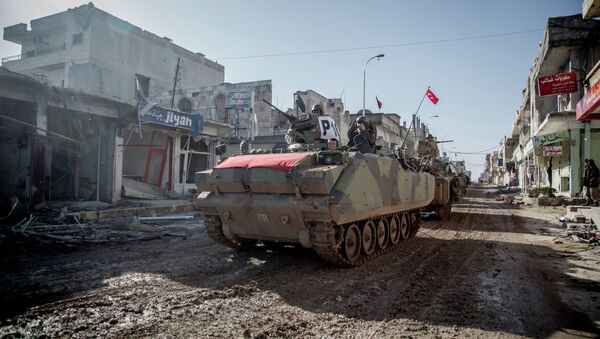The declaring of a caliphate in parts of Iraq and Syria by Daesh, which has been tacitly supported by Erdogan's government, has had the consequence of enabling the Kurds of Iraq and Syria to stake their claim in the political process.
"The specter of an independent Kurdistan on Turkey’s southern borders is back, making the relationship with Turkey’s Kurds immensely more complicated, all while the Kurdish-origin People’s Democratic Party (HDP) has become the third-largest parliamentary group," writes Pierini.
In addition, Russian and Iranian engagement in the Syrian crisis means that Ankara can no longer try and dictate the outcome of the conflict there and must engage in multi-sided political negotiations with actors who do not support the ouster of the Syrian president.
"Russia’s move also derailed Turkey’s plans to create a no-fly zone in northern Syria, officially meant to offer protection to Syrian civilians, but in fact geared at preventing a territorial expansion of Syrian Kurds."
The Paris terror attacks on November 13 have led to greater insistence from Ankara's NATO allies that it will take active steps to battle terrorism, and downing Russia's Su-24 in Syria later that month gave Moscow a reason to reveal the extent of the Turkish government's cooperation with Daesh terrorists.
"By Europe, I mean all of NATO, including Turkey," said Carter.
As a result of this aggressive foreign policy, Erdogan's vision that "espoused a dream of returning to a bygone Ottoman grandeur and geopolitically establishing Turkey as a “power in the middle,” juggling relations with the West, Russia, Central Asia and the Middle East" has been confronted with reality, writes Pierini.
Instead, as well as making enemies of its neighbors, the Turkish government has an uneasy relationship with the EU, where the idea of Turkish accession negotiations is unpopular. The Kurds are becoming more powerful both inside and outside Turkish borders, and Ankara faces demands from all sides to do more to confront the terrorist threat from Daesh.




